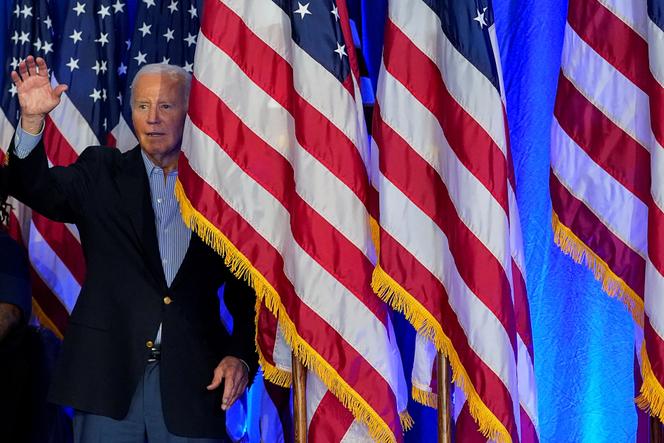


It was a rescue operation. After a week of hesitation in the White House and panic among the Democratic ranks, Joe Biden attempted, on Friday, July 5, to dispel the worries generated by his disastrous performance in the presidential campaign debate against Donald Trump. This strategy was designed to stop the speculation that threatened to sweep away his candidacy.
First, he posted a message on the social media platform X. "Let me say this as clearly as I can: I’m the sitting President of the United States. I’m the nominee of the Democratic party. I’m staying in the race." Then, there was a town hall meeting in Madison, Wisconsin, one of the most hotly contested states in the presidential election. Finally, in the evening, he gave a highly anticipated interview on ABC, which has become a test of vitality, motivation and cognitive ability, over the course of a week of overt crisis.
A test that did little to dispel people's doubts. 22 minutes without cuts, a president whose voice had definitively faded, and who was trapped in a psychological and political house of cards, which threatened to collapse at the next whiff of adversity. "Did you ever watch the debate afterwards?" asked journalist George Stephanopoulos. "I don't think I did, no." Was it just a failed debate? "I was exhausted. I didn't listen to my instincts, in terms of preparing, and a bad night." Biden took full responsibility for the failure, but added: "I was sick. I was feeling terrible." The president also claimed that the fact that Trump, "a pathological liar," had continued to speak, despite his microphone being cut off, was an factor that Biden had let "distract" himself during the debate.
To the question, "Are you the same man today that you were when you took office three-and-a-half years ago?" Biden replied by citing his successes, which meant he didn't give an answer. In contrast to the debate, he tried to talk about the future, about childcare centers and healthcare coverage for all. Above all, he refused to accept the idea of submitting to a neurological evaluation, the results of which would be published. "I have a cognitive test every single day," Biden retorted, referring to his presidential duties. Yet what was most striking about the American president's performance was how deeply he was engulfed in denial. Denial of the polls going against him, of the dissent within the Democratic Party, of his own physical and cognitive deterioration. "I don't think anybody's more qualified to be President or win this race than me," he insisted.
You have 51.96% of this article left to read. The rest is for subscribers only.
